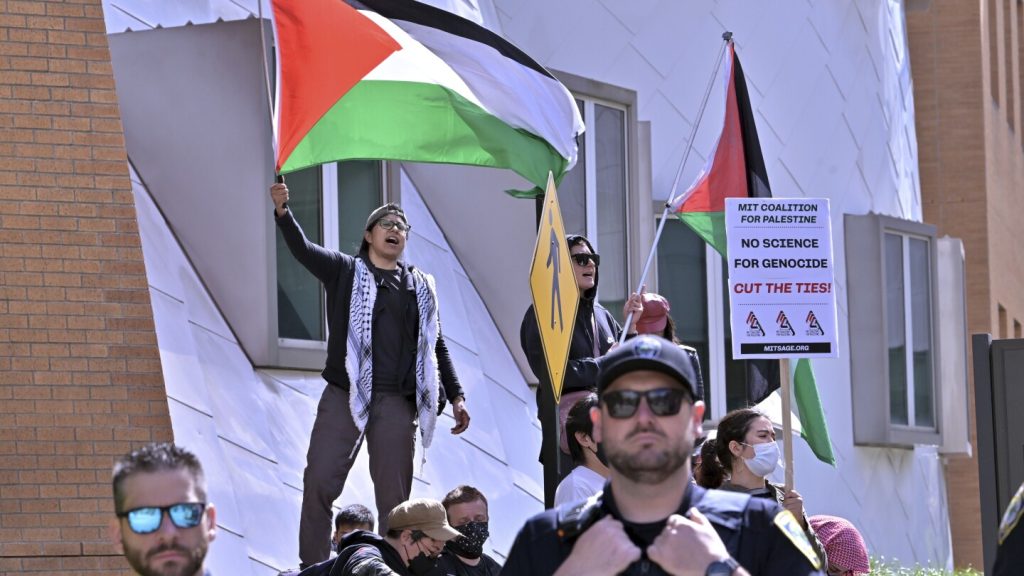The tension escalated at the Massachusetts Institute of Technology when police detained several individuals during a protest related to the Israel-Hamas conflict. Similar demonstrations have been occurring on campuses in the United States and Europe, with some colleges cracking down immediately while others have tolerated the protests. In Boston, students have set up encampments at multiple universities, including MIT, Northeastern University, and Harvard University. At MIT, protesters have been demanding an end to research contracts with Israel’s Ministry of Defense, totaling $11 million since 2015, and blocked the entrance to a campus parking garage on Thursday afternoon.
Authorities intervened a few hours later, dispersing the protesters and reopening the garage, with at least three people being detained. The protesters continued to chant “free Palestine” as they walked away. MIT officials reported that fewer than 10 people were arrested by campus police during the incident, and the Stata Garage and Vassar Street are now open. Cambridge Police also assisted in clearing the garage entrance. One of the protest leaders, Hannah Didehbani, expressed the larger movement’s goals of bringing attention to MIT’s alleged complicity with the Israeli military, despite facing disciplinary action from the school. Didehbani emphasized that MIT cannot suspend the entire student movement that is calling for the university to cut ties with Israel.
The pro-Palestinian protest movement originated at Columbia University in New York City three weeks ago and has since spread to campuses across the nation, resulting in more than 2,500 arrests. The demonstrations demand solidarity with Palestine and highlight the conflict in Gaza, with students calling for divestment from companies that support the Israeli military. The protesters believe that universities like MIT are complicit in violence against Palestinians through research and financial ties with Israel. This latest incident at MIT reflects a growing trend of student activism on campuses, especially in response to global conflicts and social justice issues.
The clash between protesters and authorities at MIT underscores the challenging balance that universities face in supporting free speech and peaceful protest while maintaining campus safety and operations. Some colleges have allowed demonstrations to continue, while others have taken a more forceful approach, leading to tensions and arrests. The complexities of addressing political movements on campus, particularly those that touch on international conflicts, require careful navigation by university administrators and law enforcement. The ongoing protests at MIT and other universities indicate a desire among students to engage in activism and raise awareness about global issues, despite potential consequences from their institutions.
As the pro-Palestinian movement gains momentum on college campuses, it raises questions about the role of universities in supporting social justice movements and addressing international conflicts. Students are increasingly using their platforms to advocate for change and challenge institutions to uphold moral responsibilities. The confrontations at MIT highlight the ongoing dialogue around divestment, academic freedom, and ethical principles in higher education. The outcomes of these protests may have long-lasting implications for how universities engage with political movements and navigate complex geopolitical issues in the academic setting. It remains to be seen how colleges will respond to the growing demands for justice and solidarity with marginalized communities both on campus and around the world.


